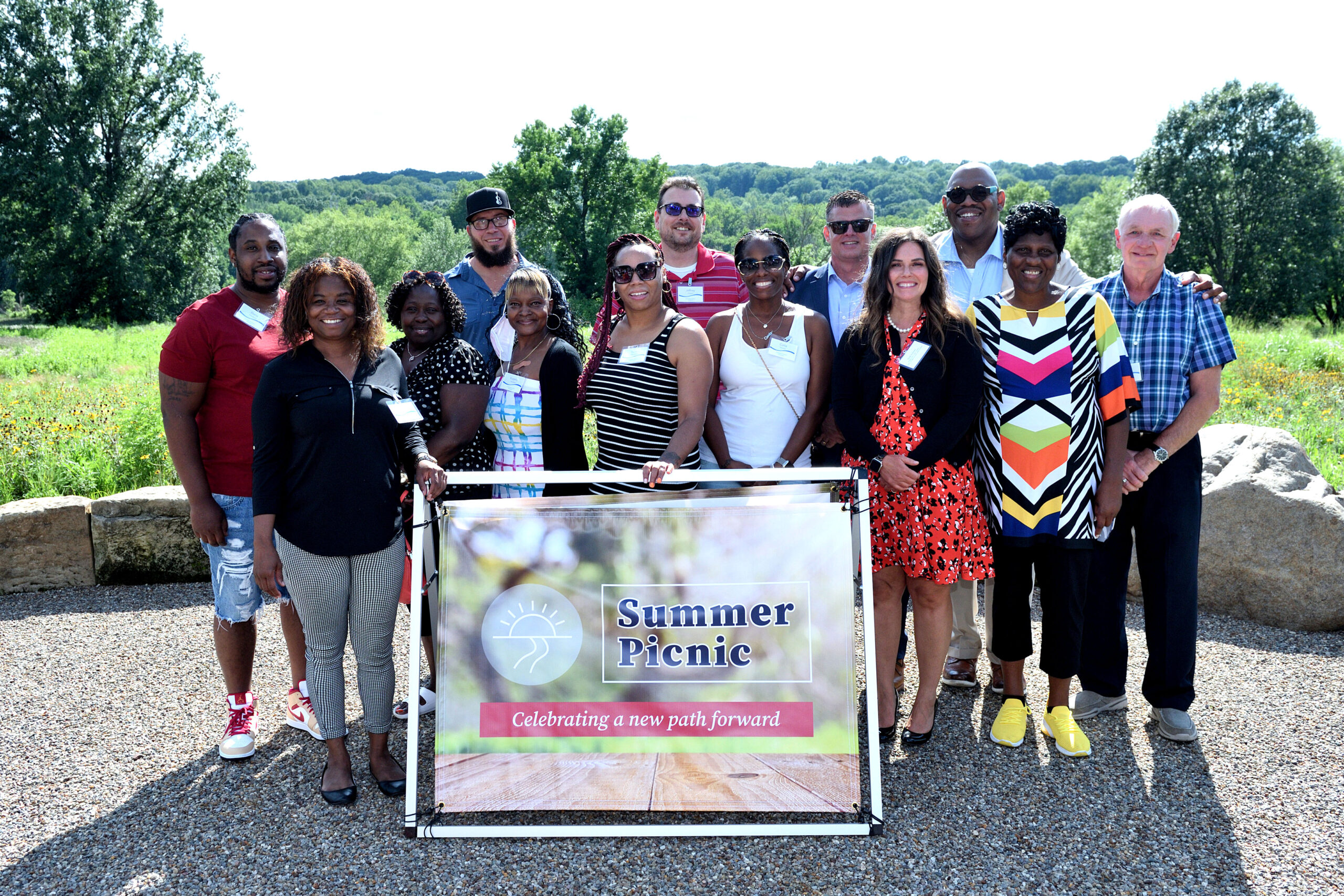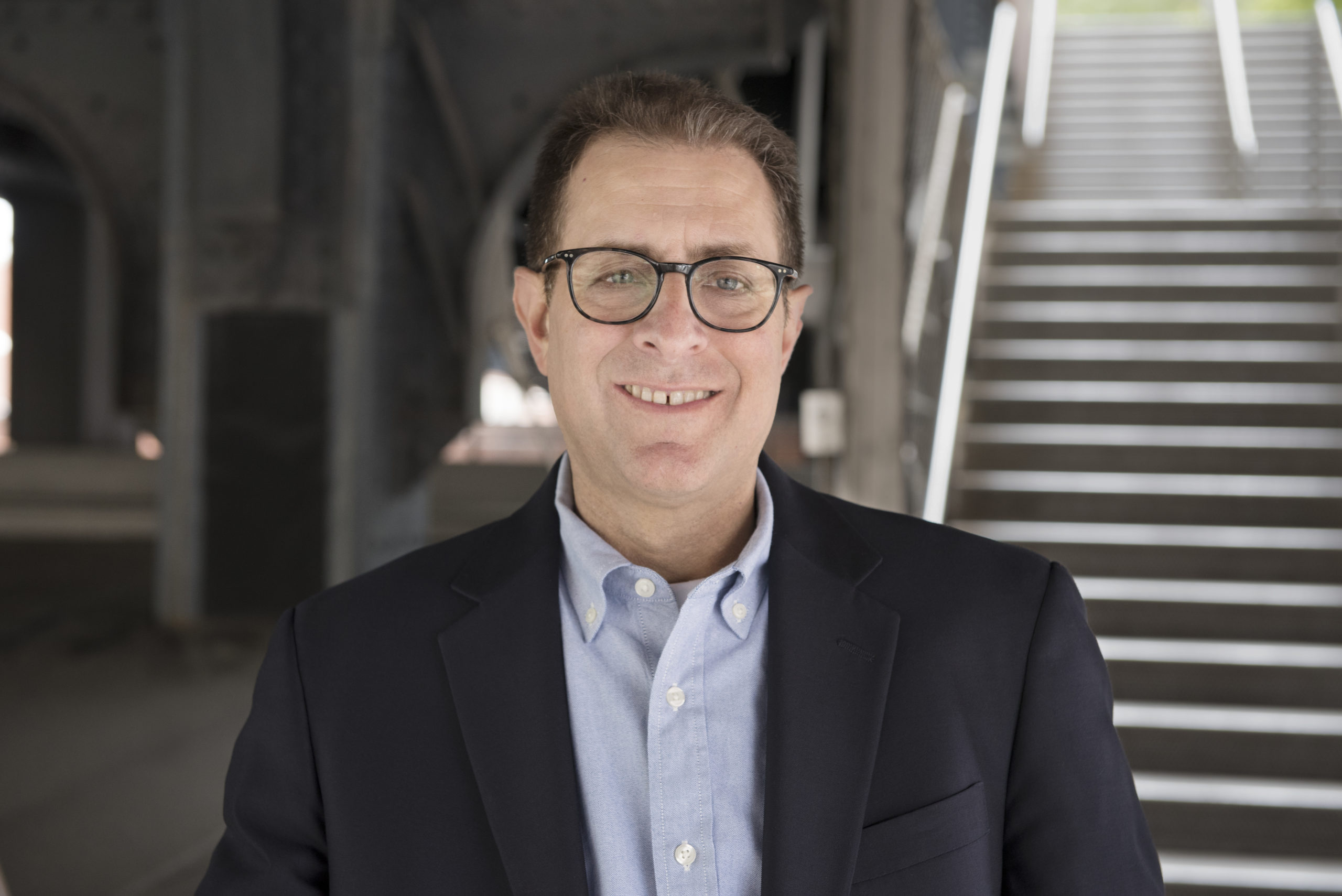In 2017, The Charles Koch Foundation provided a grant to The Ohio State University’s Moritz College of Law to establish the Drug Enforcement and Policy Center (DEPC). Led by law professor and sentencing expert Douglas Berman, DEPC develops innovative solutions to challenges in the criminal justice system that keep people safe while respecting the dignity of all individuals. The grant provided support for interdisciplinary research and community outreach, which helped position DEPC as the perfect partner for a new governor seeking to ensure an effective and just state pardon system.
Pardon delays can keep people who have reformed their lives from applying for clemency. In partnership with DEPC, Gov. Mike DeWine created the Ohio Governor’s Expedited Pardon Project (OGEPP) in 2019. We spoke with DEPC’s Berman and Jana Hrdinova about how law schools and community organizations can improve the justice system and promote public safety and how pardons restore human dignity.
Charles Koch Foundation: What is OGEPP. How did you get involved?
Berman: OGEPP brings together community partners and law schools to prepare pardon applications for people who have not committed a crime in at least a decade and are employed or otherwise actively contributing to their community. Gov. Mike DeWine observed he was not regularly receiving clemency applications from people who had clearly rehabilitated themselves and whose records were holding them back in some way, either from advancing in their careers, starting businesses, or getting housing. He wanted a process to identify and help people, so his senior staff reached out to us.
Charles Koch Foundation: Who are the individuals or organizations helping you drive this bottom-up change?
Berman: Joann Sahl, a University of Akron law professor, who has run a reentry and clemency clinic for years, was a key resource. She told us to work closely with the state parole board. In Ohio, clemency can’t be granted until the governor receives a parole board recommendation. State law requires the board’s input. Professor Sahl also told us how important the board’s hearings are as we discussed whether it could be helpful to try to shorten the clemency process by eliminating the hearing and relying on a written application. Without Professor Sahl’s experience and insight, we wouldn’t have known how best to improve the system.
Hrdinova: We have six community partners around the state whose role is to inform their communities about OGEPP. These organizations have been doing reentry work for years and are trusted resources. We also partner with other Ohio law schools, including the University of Akron, and have three other service providers: University of Dayton, Cleveland State University, and the Ohio Justice and Policy Center, who have experience doing reentry work. It also has been important to tap into the law student population. What we know about this generation of students is that they are aware of justice inequities and want to address them. Additionally, some of these law students will go into public service and become defense attorneys and prosecutors. Putting a human face on the justice system will generate empathy, I hope.
Charles Koch Foundation: Regaining dignity can be difficult after a conviction. How does OGEPP aid the reentry process?
Hrdinova: It can be hard to understand how a conviction can impact a person’s self-worth. Sealing records is helpful, but it doesn’t give you the forgiveness of the state. Pardons do. Last summer we held a picnic for all pardon recipients. Several people provided testimonials about OGEPP’s impact on their lives. We shed a lot of tears of joy that day.
Berman: Scholars have a ready accounting of how being justice-involved hurts educational, employment, and housing opportunities. We can rattle off the tangible collateral consequences, but there is something more elemental. In our initial application, we ask each client why they want a pardon. The answers are a reminder of how soul-crushing it can be to live with a conviction. We heard from a grandparent who was afraid to volunteer at their grandchild’s school because they didn’t want to even take the chance that the school would find out about a decades-old, minor conviction. That shame is what is most pernicious.
Charles Koch Foundation: OGEPP helps individuals, but how does it help the community?
Hrdinova: I read every single application. About 90 percent of people apply for OGEPP for employment-related reasons. Even if they have found a job, there is a ceiling in some industries you cannot cross if you have a conviction. We have people who drop out of nursing school after they find out that they might never get licenses. Records sealing alone doesn’t always help. A pardon would allow them to serve patients.
Berman: A lot of our applicants are entrepreneurial. We’ve had people who were caring for relatives and realize, “Hey, I’m pretty good at this.” But when they try to use these skills in the workforce or to get a license for a care business, they can’t. Or they can’t get a bank loan. We’ve also had salespeople who cannot work across state lines. Ohio may let them operate, but another state doesn’t because of the prior conviction. That limits their ability to achieve their professional goals — and it limits their employers too. A lot of people trim their vision of professional achievement because they know this record is hanging over them.
Charles Koch Foundation: Any exciting new developments you can share?
Hrdinova: When we started, the average wait time for a pardon was two to four years, and in some cases even longer. Most of the cases we handle are resolved in six to 12 months — and three and a half months of that we cannot cut because it’s required by statute. Nearly 600 people have applied for OGEPP, and we’ve had more than 60 clients receive pardons. In terms of demographics, we have clients who earn less than $25,000 a year and people who earn more than $100,000. We serve people of all backgrounds, ages, and races. And we don’t just serve Ohio residents. Currently, we have applications from people in 22 other states. I don’t even know how people find us! The project has also helped ensure records for offenses that were pardoned are sealed, which was not the case when we started. Almost two decades ago, there was a case of a local custodian who lost his job after working for a local school district for 21 years after his background checks uncovered an old conviction. Being able to seal one’s record upon the granting of a pardon was a huge change.
Charles Koch Foundation: What advice do you have for people who want to improve the justice system?
Berman: For the philanthropic community, know that whatever you invest in is going to have both economic and human benefits. There was some kismet to OGEPP coming together. We were able to respond immediately to the governor’s request only because we had a grant from CKF and because the University of Akron had a functioning clinic focused on reentry. The governor had the right idea, and we were ready because the funding we received enabled us to respond. Also, understand there are many opportunities to meaningfully improve lives. One in three Americans has a criminal conviction. A little money goes a long way. Simply providing resources to help people sort their options for reentry would be helpful. People are eligible for records-sealing, for example, but they don’t take advantage of it because they don’t know where to start. There is a massive unserved need.
Hrdinova: That’s right. For example, many people don’t know that even if your case is dismissed, it’s on your record so it might affect your ability to get a job or housing. We need to better educate people about the justice system, reduce its complexity, and create programs and services that give people back their dignity.
Click here and here to read more about DEPC and CKF’s support for the program.
The transcript of this conversation was lightly edited for length and clarity.










